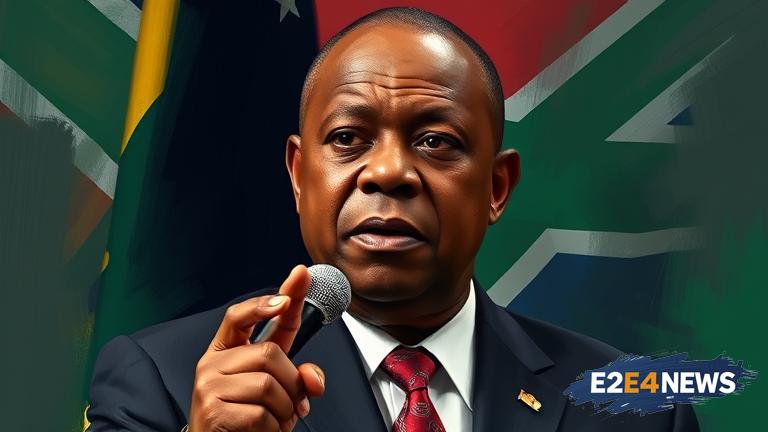The recent decision to ignore President Cyril Ramaphosa’s alleged constitutional violations has sent shockwaves throughout South Africa, with many questioning the implications of this move on the country’s democratic institutions. The controversy surrounds Ramaphosa’s handling of the Phala Phala farm scandal, which has been marred by allegations of corruption and impropriety. Despite these claims, the President has managed to evade accountability, prompting concerns about the erosion of trust in the government. The opposition has been vocal in its criticism of Ramaphosa, accusing him of undermining the Constitution and the rule of law. The Democratic Alliance (DA) has been particularly scathing, labeling the President’s actions as a ‘constitutional crisis’. The party has called for Ramaphosa’s resignation, citing his alleged involvement in the cover-up of the scandal. However, the African National Congress (ANC) has rallied behind its leader, dismissing the allegations as ‘baseless’ and ‘politically motivated’. The ANC’s stance has been seen as a clear indication of the party’s willingness to prioritize loyalty over accountability. This has led to accusations that the ANC is more interested in protecting its leader than upholding the principles of democracy. The implications of this decision are far-reaching, with many worrying about the potential consequences for the country’s democratic institutions. The independence of the judiciary, the effectiveness of the parliamentary oversight mechanism, and the integrity of the electoral process are all under threat. The decision to ignore Ramaphosa’s alleged constitutional violations has also raised questions about the role of the media in holding those in power accountable. The South African media has been praised for its robust coverage of the scandal, but some have argued that it has not gone far enough in scrutinizing the President’s actions. The international community has also been watching the situation closely, with some expressing concern about the potential impact on South Africa’s reputation as a democratic nation. The United States, in particular, has been vocal in its criticism of Ramaphosa’s handling of the scandal, with the US Ambassador to South Africa calling for greater transparency and accountability. The European Union has also weighed in, urging the South African government to take steps to address the allegations and ensure that the rule of law is upheld. As the situation continues to unfold, it remains to be seen how the South African government will respond to the growing criticism. One thing is certain, however: the decision to ignore Ramaphosa’s alleged constitutional violations has significant implications for the country’s democratic future. The ANC’s willingness to prioritize loyalty over accountability has raised concerns about the party’s commitment to upholding the principles of democracy. The opposition, on the other hand, has been praised for its vocal criticism of the President’s actions, with many seeing it as a crucial check on the executive’s power. Ultimately, the outcome of this saga will depend on the ability of South Africa’s democratic institutions to hold those in power accountable. The country’s future as a democratic nation hangs in the balance, and it is up to its citizens, media, and institutions to ensure that the principles of democracy are upheld. The road ahead will be long and challenging, but one thing is clear: the decision to ignore Ramaphosa’s alleged constitutional violations is a threat to South Africa’s democratic foundations. It is imperative that the government takes steps to address the allegations and ensure that the rule of law is upheld. The international community will be watching closely, and it is up to the South African government to demonstrate its commitment to democracy and the rule of law. The future of South Africa’s democracy depends on it.
